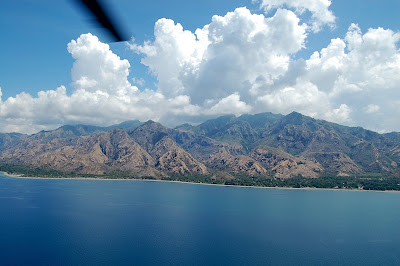
In general, spending holidays in foreign countries sucks. This is especially true of Thanksgiving, which no one really understands beyond the fact that it involves turkey. This year, I spent it one of the restaurants at my posh digs in

No, my quarrel is mainly with the manager of the joint (British, who has a people should never be allowed to cook anything). He somehow imparted to the kitchen staff that crab rangoons were an integral part of the American holiday menu (though they were doused with mayonnaise, which is unarguably American), and that turkey should be served heavy on the spine and liver. I almost took a picture of the gravy soaked chain of vertebrae. (I was stopped by the fact that I was already eating alone with a novel and making Calvin and Hobbes style faces at the food, so anything else might be considered rude.) And, least authentically of all in my opinion, I only got one little thimble full of crappy Australian wine to wash down the culinary train wreck.
Needless to say I came back to my room a little depressed about the whole ordeal. And I was still in a mood when I woke up today. Luckily, I thought, only one more day until I can blow this crap town. Then one of the local consultants called and asked if I would like to have a late lunch, traditional
Now when I first got to Indonesia, I though goreng meant "food," because every dish on the menu always ended in the word goreng. It actually means fried. Nasi goreng is fried rice, mie goreng is fried noodles, ayam goreng is fried chicken... And bebak goreng is fried duck.
As it is good politics to agree to these sorts of outings, plus I didn’t have other lunch plans, off we went. Upon arrival, the restaurant looked promising – a giant fryer full of duck out front, only one main course on the menu, and not a fork in sight.
And thusly I found my redemption here in















